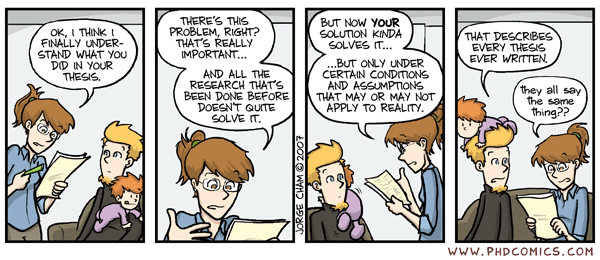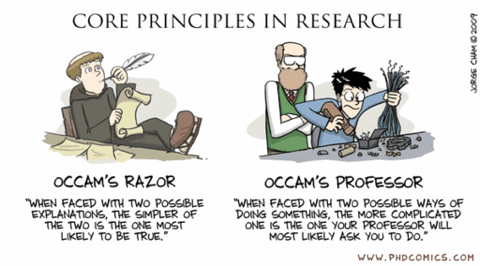Where would scientists be, if they weren’t allowed to make certain convenient assumptions? Insisting on mathematical rigour would mean the untimely death of scores of bright young economists.
Assume a Can Opener
A joke, mocking economists and other professionals who base their conclusions on unrealistic or unlikely assumptions, first mentioned in a book by British economist Kenneth E. Boulding:
A physicist, a chemist, and an economist were stranded on a desert island with no implements and a can of food. The physicist and the chemist each devised an ingenious mechanism for getting the can open; the economist merely said, “Assume we have a can opener”!

You there, the physics grad! Quit sniggering, you’re up next.
Spherical Cow
A metaphor for highly simplified scientific models of complex real life phenomena, poking fun at theoretical physicists and their habit of conveniently reducing a problem to the simplest imaginable form.
“How does a physicist milk a cow?”
“Well, first let us consider a spherical cow…”

I’ll close with a word of warning. The fewer assumptions, the better.
Occam’s Razor
Alternatively, Ockham’s razor. A problem-solving principle attributed to William of Ockham:
Among competing hypotheses, the one with the fewest assumptions should be selected.
One justification of Occam’s razor is a direct result of basic probability theory. By definition, all assumptions introduce possibilities for error, therefore if an assumption does not improve the accuracy of a theory, its only effect is to increase the probability that the overall theory is wrong.


